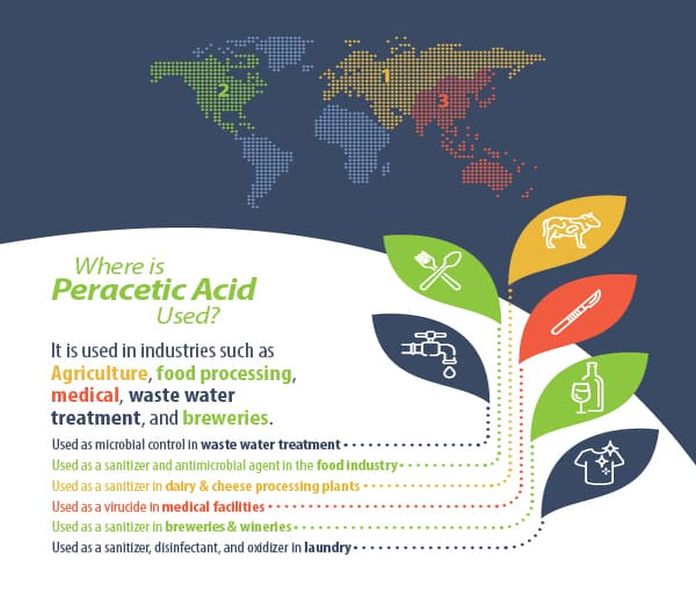By Shen Pei-yao and Ko Lin
TAIPEI, Taiwan, (CNA) – The Taiwan Food and Drug Administration (TFDA) has amended a regulation to allow food industry operators the option to use peracetic acid as a cleanser in ready-to-eat fresh produce.
The inclusion of peracetic acid in the Sanitation Standard for Food Cleansers comes after referencing international practices and other relevant safety assessments, according to the TFDA in a press release on Thursday.
Peracetic acid, also known as peroxyacetic acid or PAA, is a type of oxidizing agent that has been used in numerous applications, including as a chemical disinfectant in healthcare and as a sanitizer to control water quality in aquaculture.
Prior to the amendment, sodium chlorite solutions, chlorine dioxide, hypochlorous acid and sodium hypochlorite were the only four industrial chemical agents permitted to be used as cleansers in ready-to-eat raw food in Taiwan, Tsai Shu-jean (蔡淑貞), who heads the TFDA’s Food Safety Division, told CNA.
Peracetic acid was originally only intended to be used to disinfect containers or packages that come in direct contact with food, but local industry operators had hoped to expand its use as a food cleanser, Tsai said.
Food cleansers, she said, are primarily used in fresh vegetables and fish that can be consumed uncooked, such as salads, sashimi or fruits sold in supermarkets and restaurants.
According to the TFDA, the addition of peracetic acid will give operators a new option for disinfecting raw edible food, as this oxidizing agent typically evaporates without leaving any residue.
However, if residue does remain, it must not exceed 1 part per million (ppm), as stipulated in the revised food cleanser regulation that came into effect on Thursday. Operators who violate this standard will be subject to a fine between NT$30,000 (US$932) and NT$3 million under the Act Governing Food Safety and Sanitation, the administration said.





